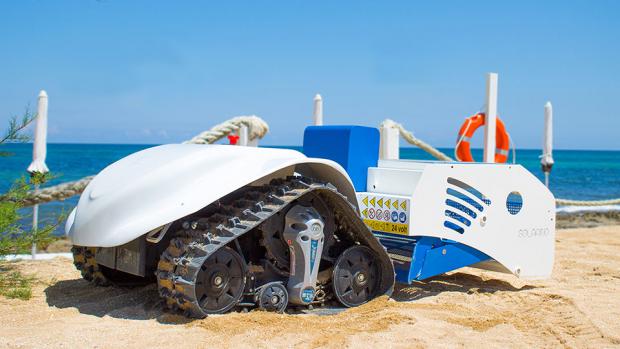
Breaking News
DRINK 1 CUP Before Bed for a Smaller Waist
 Nano-magnets may defeat bone cancer and help you heal
Nano-magnets may defeat bone cancer and help you heal
 Dan Bongino Officially Leaves FBI After One-Year Tenure, Says Time at the Bureau Was...
Dan Bongino Officially Leaves FBI After One-Year Tenure, Says Time at the Bureau Was...
 WATCH: Maduro Speaks as He's Perp Walked Through DEA Headquarters in New York
WATCH: Maduro Speaks as He's Perp Walked Through DEA Headquarters in New York
Top Tech News
 Laser weapons go mobile on US Army small vehicles
Laser weapons go mobile on US Army small vehicles
 EngineAI T800: Born to Disrupt! #EngineAI #robotics #newtechnology #newproduct
EngineAI T800: Born to Disrupt! #EngineAI #robotics #newtechnology #newproduct
 This Silicon Anode Breakthrough Could Mark A Turning Point For EV Batteries [Update]
This Silicon Anode Breakthrough Could Mark A Turning Point For EV Batteries [Update]
 Travel gadget promises to dry and iron your clothes – totally hands-free
Travel gadget promises to dry and iron your clothes – totally hands-free
 Perfect Aircrete, Kitchen Ingredients.
Perfect Aircrete, Kitchen Ingredients.
 Futuristic pixel-raising display lets you feel what's onscreen
Futuristic pixel-raising display lets you feel what's onscreen
 Cutting-Edge Facility Generates Pure Water and Hydrogen Fuel from Seawater for Mere Pennies
Cutting-Edge Facility Generates Pure Water and Hydrogen Fuel from Seawater for Mere Pennies
 This tiny dev board is packed with features for ambitious makers
This tiny dev board is packed with features for ambitious makers
 Scientists Discover Gel to Regrow Tooth Enamel
Scientists Discover Gel to Regrow Tooth Enamel
 Vitamin C and Dandelion Root Killing Cancer Cells -- as Former CDC Director Calls for COVID-19...
Vitamin C and Dandelion Root Killing Cancer Cells -- as Former CDC Director Calls for COVID-19...
New Solar-Powered Beach-Combing Robot Filters Even Tiny Plastic 30x Faster Than Humans

The electric-powered, sand-sifting BeBot can clean up to 3,000 square meters, or 33,000 square feet, of beach per hour, making it 20-30x more effective than collecting trash by hand.
The machine is agile and easy to maneuver, a clear differentiator from existing options which tend to be derived from retired agricultural equipment powered by gas, making them less-suited to delicate beach work.
It specifically excels at removing small pieces of plastic and other trash that are notoriously difficult to clean by hand, using small 1 cm x 1 cm sifting grids to separate these items from the sand.
A pair of triangular tracks gives the BeBot a smaller footprint, while a shallower cleaning depth of 10 cm effectively removes common beach trash while avoiding disruptions to any nearby habitats or animals, providing a more effective and sustainable approach to cleanups.
A remote-controlled robot, the beach-cleaner can be operated from up to 950 feet away.
BeBot comes out of a marine-technology firm called Polaru Marine, that among many other projects such as robotics, specializes in building aluminum marinas. They construct floating solar panel banks, and other cool aqua-tech like the "mooring star," which is essentially a giant addition sign that allows nature parks to greatly increase their boat mooring potential whilst protecting shorelines.



